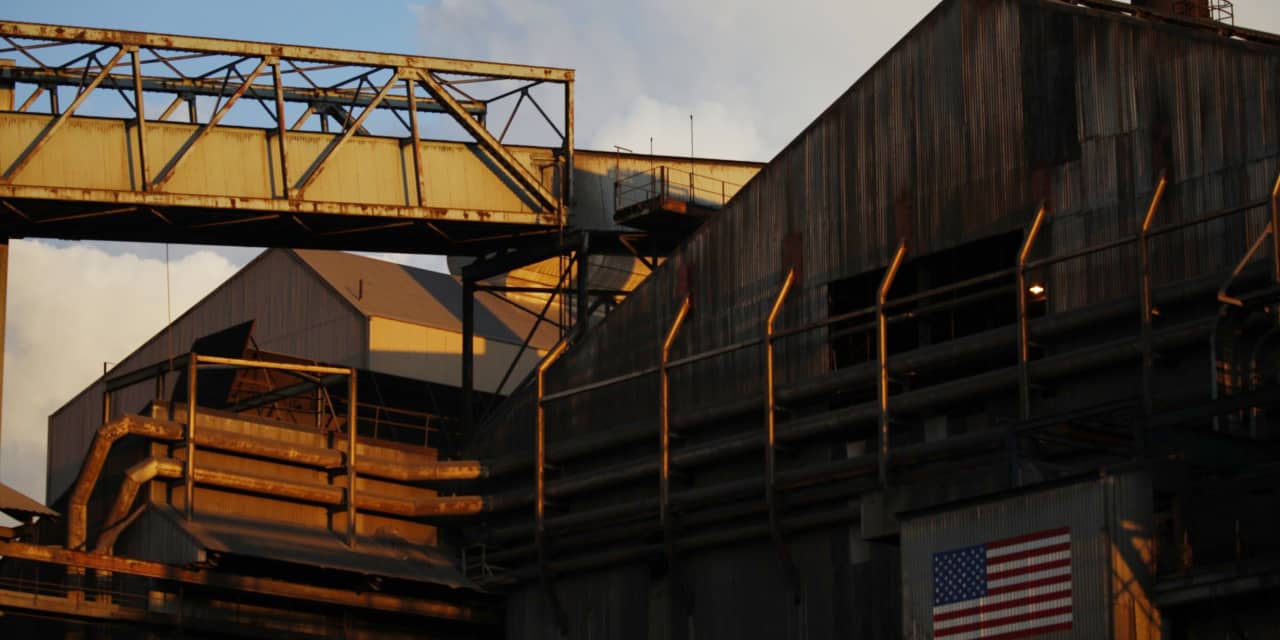United States Steel
has agreed to be purchased by
Nippon Steel.
That’s a win for
U.S. Steel
shareholders if the deal is allowed to proceed.
Now that U.S. Steel stock has soared,
Cleveland-Cliffs
stock might be the better bet for 2024.
Nippon announced a $55 cash bid for U.S. Steel shares Monday. U.S. Steel stock soared from just under $40 to about $50 a share in early trading.
The deal values U.S. Steel’s stock and debt at about 7.2 times estimated 2024 earnings before interest, taxes, depreciation, and amortization, or Ebitda.
Cleveland-Cliffs
stock is trading for about 5.6 times.
At 7.2 times, Cliffs shares would be worth about $30 a share, up almost 40% from recent levels.
The U.S. Steel/Nippon “deal is a major validation of the value of
the U.S. steel industry and Ciffs is well poised to rerate on the higher transaction multiple,” wrote B. Riley analyst Lucas Pipes in a Tuesday report. Rerating refers to investors deciding to pay more for a company’s or an industry’s earnings.
Pipes rates Cliffs stock Buy and has a $25 price target for shares. That price target doesn’t represent a full rerating, he writes. Cliffs shares would be roughly $33 a share if the company traded at 6.5 times his 2025 estimated Ebitda.
That’s a big multiple for a traditional U.S. steel producer. Over the past few years, U.S. Steel and Cleveland-Cliff have traded for about 4 times estimated next year’s Ebitda. The 7.2 times multiple is a big bump.
Japanese steel producers might be able to pay more because their shares typically trade better than U.S. Steel producers. Nippon and
JFE
typically trade for about 6 times estimated next year’s Ebitda, a 50% premium to the U.S.
Nucor
and
Steel Dynamics
trade more like Japanese mills. Nucor trades for an average of about 7 times.
Steel Dynamics
trades for about 6 times. Those two aren’t traditional steel producers though. They make steel by primarily remelting scrap, which is a smaller, lower-cost process.
U.S. Steel stock was down 1.8% in midday trading, at $48.70, while the
S&P 500
and
Dow Jones Industrial Average
were up 0.4% and 0.5%, respectively. Shares are still about 13% below the $55 buyout price which indicates investors are a little worried about the deal closing as envisioned.
Political opposition is a big reason for investors’ concern. Senators John Fetterman and J.D. Vance opposed the deal.
“It’s absolutely outrageous that U.S. Steel has agreed to sell themselves to a foreign company,” Fetterman said in a videoed statement. “Steel is always about security—both our national security and the economic security of our steel communities.”
”I am committed to doing anything I can do, using my platform and my position, to block this foreign sale,” added Vance in a news release.
The opposition, frankly, doesn’t make a lot of sense. The steel output of the country is unaffected by ownership. And Japanese companies have owned U.S. steel, buildings, auto plants, and other businesses for decades without harming the economy or workers.
What’s more, the U.S. Steel business would have become more concentrated if Cleveland Cliffs was the successful bidder. U.S. Steel and Cliffs combined would have controlled a large portion of American iron ore and automotive steel output. Nippon’s ownership of U.S. Steel doesn’t move industry market shares.
Cliffs bid for U.S. Steel in August and its first cash and stock bid valued U.S. Steel shares at about at about $35 a share.
Fetterman and Vance didn’t return requests for comment.
What matters more than who owns any asset is if the owners have a solid strategy and the capital to execute the strategy.
Over the past 10 years, before the Nippon bump, U.S. Steel stock returned about 4% a year on average. The S&P 500 has returned about 12% over the same span. It appears U.S. Steel could use some help.
Nippon Steel
might not be the best help though. Its shares have returned about 2% a year on average over the past 10 years. Cleveland-Cliffs shares have lost about 1% a year on average.
Weak performance is one reason Cliffs has remade itself under CEO Lourenco Goncalves. He took over in 2014 and turned Cliffs from an iron ore producer into one of America’s largest steel companies. Shares have returned roughly 3% a year on average, since he took the reins, outperforming U.S. Steel stock by more than 1 percentage point a year.
Still, 3% isn’t great. Steel is a tough business.
Write to Al Root at [email protected]
Read the full article here




